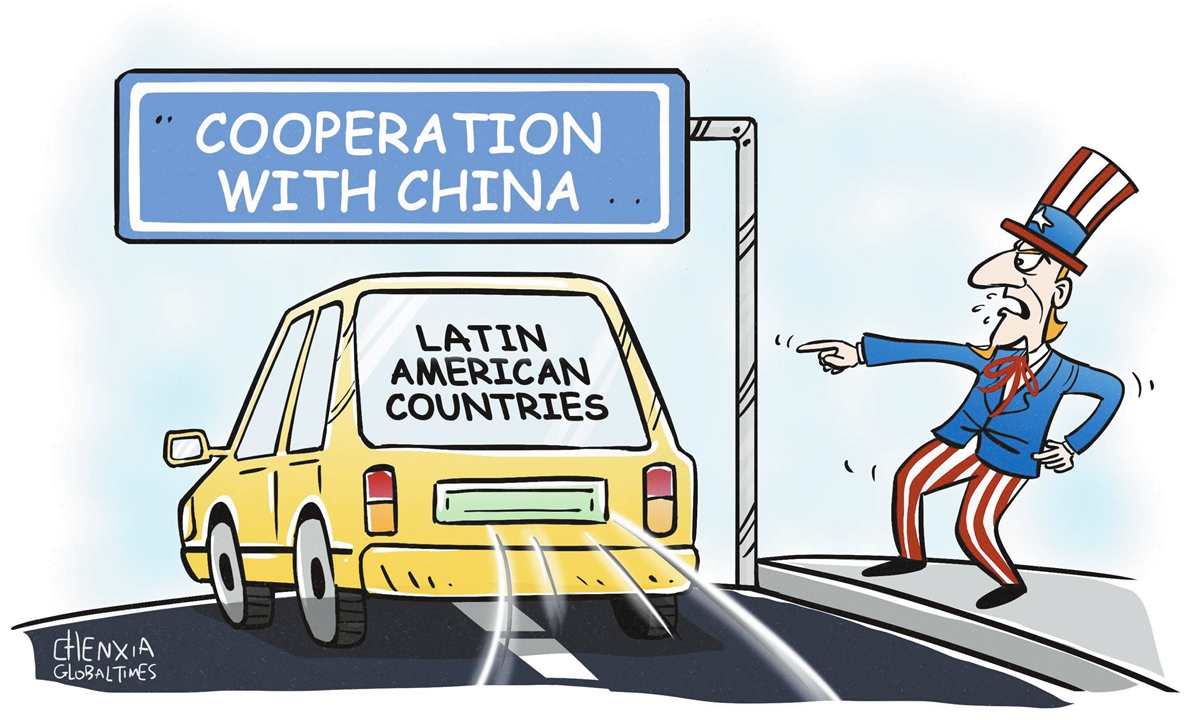
Illustration: Chen Xia/GT
The Brazilian government has set up an inter-ministerial working group to analyze Brazil's entry into the China-proposed Belt and Road Initiative (BRI) in the coming days, according to the South China Morning Post on Tuesday. This isn't the first time Brazil has shown interest in joining the BRI. As one of the few South American nations yet to participate in this initiative, Brazil is becoming increasingly aware of its own development needs and is leaning toward China's cooperation model. This reflects the growing attractiveness of Chinese initiatives in Latin America and subtle changes in the current international political landscape. This shift not only highlights Brazil's quest for foreign policy independence but also represents a strong counter to US hegemony in the region.
If Brazil joins, the BRI proposed by China will undoubtedly provide a new pathway for the country, enabling it to gain support for infrastructure construction, industrial upgrading and technological development. This type of cooperation aligns with Brazil's economic objectives.
However, since news of Brazil considering joining the BRI began to circulate, the US has been obstructing the country's participation in the initiative. It has been reported that a US envoy in Brazil once stated that anyone considering joining the BRI should think twice and understand how sovereignty can be compromised.
No country's sovereignty was taken away by joining the BRI; rather, for so many years, it has been the US that has treated Latin America as its backyard and implemented the Monroe Doctrine in the region. This is the true disrespect for the sovereignty of countries in the region.
The history of US-Latin American relations over the past 200 years is also a history of "control and counter-control." Entering the new century, the awareness of strategic autonomy in Latin America has unprecedentedly strengthened. The US is finding it increasingly difficult to "control" Latin America, and is casting increasingly suspicious glances at the region's equal and mutually beneficial cooperation with other countries, China in particular.
Washington has perceived the BRI through a lens shaped by Cold War-era thinking, viewing the initiative not merely as an economic development project but as a geopolitical strategy aimed at increasing China's global influence and power, potentially undermining US dominance in international affairs. However, despite the US smearing the initiative as a "geopolitical tool," countries in the region generally view it as a valuable international public good and an effective platform for cooperation, representing a development opportunity they cannot afford to miss.
Latin American countries have heightened demands for diversified cooperation, including the BRI. Their positive attitude toward the BRI reveals a deeper change in mind-set: They are in search of a new model of cooperation that breaks away from the past. With the voices of developing nations becoming more prominent, Latin American countries increasingly aspire to partnerships rooted in equality and respect, rather than positioning themselves as vassals to any single power.
Breaking free from US control and seeking independent and autonomous foreign cooperation that benefits their own development and meets their own needs is a prevailing trend in the Latin American region. Wu Hongying, director of the Latin American office of the China Institute of Contemporary International Relations, believes that cooperation between China and Latin American countries is highly complementary and the US' attempts to hinder Latin American countries' engagement with the BRI, if any, are unlikely to succeed.
The US should reflect deeply on its historical and current policies in Latin America and make necessary changes, rather than interfering without justification and obstructing mutually beneficial cooperation between Latin America and other countries, particularly China.




